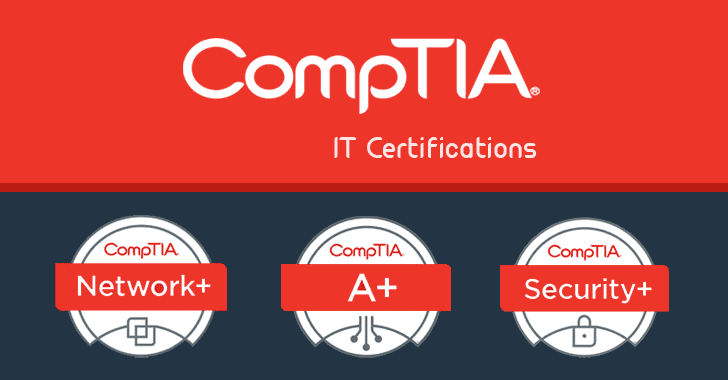
It is important to understand what is involved in the process if you are thinking about becoming an IT consultant. Information technology consultants offer training, support, and consultation services in association with computer software, database systems, multimedia, hardware, and networks for both individuals and companies.
Below are some valuable insights shared by www.etech7.com – ETech 7 is one of the leading managed IT services companies in the US.
Career Requirements
- Bachelor’s Degree
- Degree Field – Computer science, Information Technology, or a related field
Certification – Optional yet often preferred
- Experience – Varies, but the minimum is usually one year
- Primary Skills – Being able to work with a team or independently, productivity, great communication skills, experience in word processing, and creative software, technical understanding relating to networks and computer systems
The Career Requirement For An IT Consultant
Employers often look for people that have a minimum of a Bachelor’s degree. This degree field must also include computer science, information technology, or any related field. Certification happens to be optional, yet it is a requirement for several employers. Many employers also want individuals that have between 1 to 7 years of experience.
The primary skills that the individual should have will include the capability to work with a team or independently, a sound understanding of computer networks and systems, experience in word-processing software, and adequate communication skills. Here is an overview of the steps involved in how to become a successful IT consultant:
Step One: Obtain A Bachelor’s Degree
Many of the positions for IT consultants require that the candidate has a Bachelor’s Degree in computer science, information technology, or related fields. The programs that cover information technology include coursework covering programming, networking and database fundamentals, systems architecture, and information security. The programs that cover computer science typically include coursework that covers data structures, programming, computer architecture, web development, software engineering, and project management. Many schools or colleges require that the applicants hold a GED or high school diploma as one of the conditions for their enrolment.
Step Two: Obtain Work Experience
The job positions for IT consultants typically require that the applicant has 1 to 7 years of experience. This will depend on the level associated with the position. All the entry-level IT jobs, including IT technicians or computer support specialists, can offer support, consultation, and training services. Many of the jobs require IT consultants to conduct support, updates, and installations to computer hardware, network, and software systems. Certain jobs might require IT consultants, to work in different environments.
Step 3: Become Certified
Even though this is not a requirement for every position, most employers choose applicants who hold professional certifications. Prospective information technology consultants can choose from various IT certifications, which help them advance their career prospects. MOUS (Microsoft Office User Specialist), MCITS (Microsoft Certified IT Specialist), or ACPS (Apple Certified Support Professional) are often very valuable operating systems certifications.
They typically require that the applicant participates in voluntary training programs along with passing written exams. Some of these courses also require recertification. The Institute of Management Consultants provides a CMC (Certified Management Consultant) exam. This is a certification that is made available at management, basic, and experience levels, which will depend mainly on an applicant’s work experience, and education level.
Achieving a degree, obtaining work experience, and securing a job will be the steps needed to ensure a successful career path as an IT consultant.
The Benefit Of IT Certifications
IT certifications often open various doors throughout a career in IT, especially for those looking to advance their careers. Hiring and recruiting managers usually review the Certification section of an IT consultant’s resume first before moving on to everything else.
This mainly has to do with wanting applicants who hold up-to-date knowledge. IT certifications show that the individual has a mastery of specific types of practice or technology, from the help-desk basics onto mastery of complicated cloud environments.
So for seasoned IT specialists or recent graduates, preparing to attain one or more certifications is the ideal method to grow one’s skill set, stand above the competition, and impress prospective employers.
Below is a list of the latest and the most sort after IT certifications:
- CDP- Certified Data Professional
- CISSP – Certified Information System Security Professional
- CCNA – Cisco Certified Network Associate
- CCIE – Cisco Certified Internet Expert
- CCNP – Cisco Certified Network Professional
- CISA – Certified Information Systems Auditor
- MTA – Microsoft Technology Associate
- CompTIA A +
- PMP – Project Management Professional
- CSM – Certified Scrum Master
- Salesforce Certified Development Deployment And Lifecycle
- Oracle Certified Professional
- ITIL
- CEH – Certified Ethical Hacker
- AWS Certified Solutions Architect
- GIAC – Global Information Assurance Certification
For beginner IT consultants, many introductory certifications can help secure that first IT job:
- CompTIA certification
- CompTIA provides certifications for many platforms and technologies, yet there is one that is regarded as the most valuable when it comes to IT pros:
- CompTIA A+
These are foundational certificates to help beginners. It covers technical support, hardware, and troubleshooting. This course also includes best practices when it comes to networking, security, mobile devices, operational procedures, and different operating systems.
Microsoft, the tech giant also provides entry-level certifications that cover different subjects. These include:
- Software development fundamentals
- Window operating-system fundamentals
- Database fundamentals
- Networking fundamentals
- Windows Server Administration fundamentals
- Security fundamentals
- Programming introduction into JavaScript/Java/CSS/Python and HTML
- Midlevel Microsoft Certifications
On completion of an entry-level certification, many IT consultants consider one of the intermediate certifications available through Microsoft. These include:
- MCSE – Microsoft Certified Solutions Expert
The MCSE certifications are available in multiple specializations, which display that the applicant has a skill set and knowledge to manage data systems, servers, networking, private clouds, and more.
- MCSD – Microsoft Certified Solutions Developer
An MCSD certification shows that the applicant can create and design apps across various Windows products.








